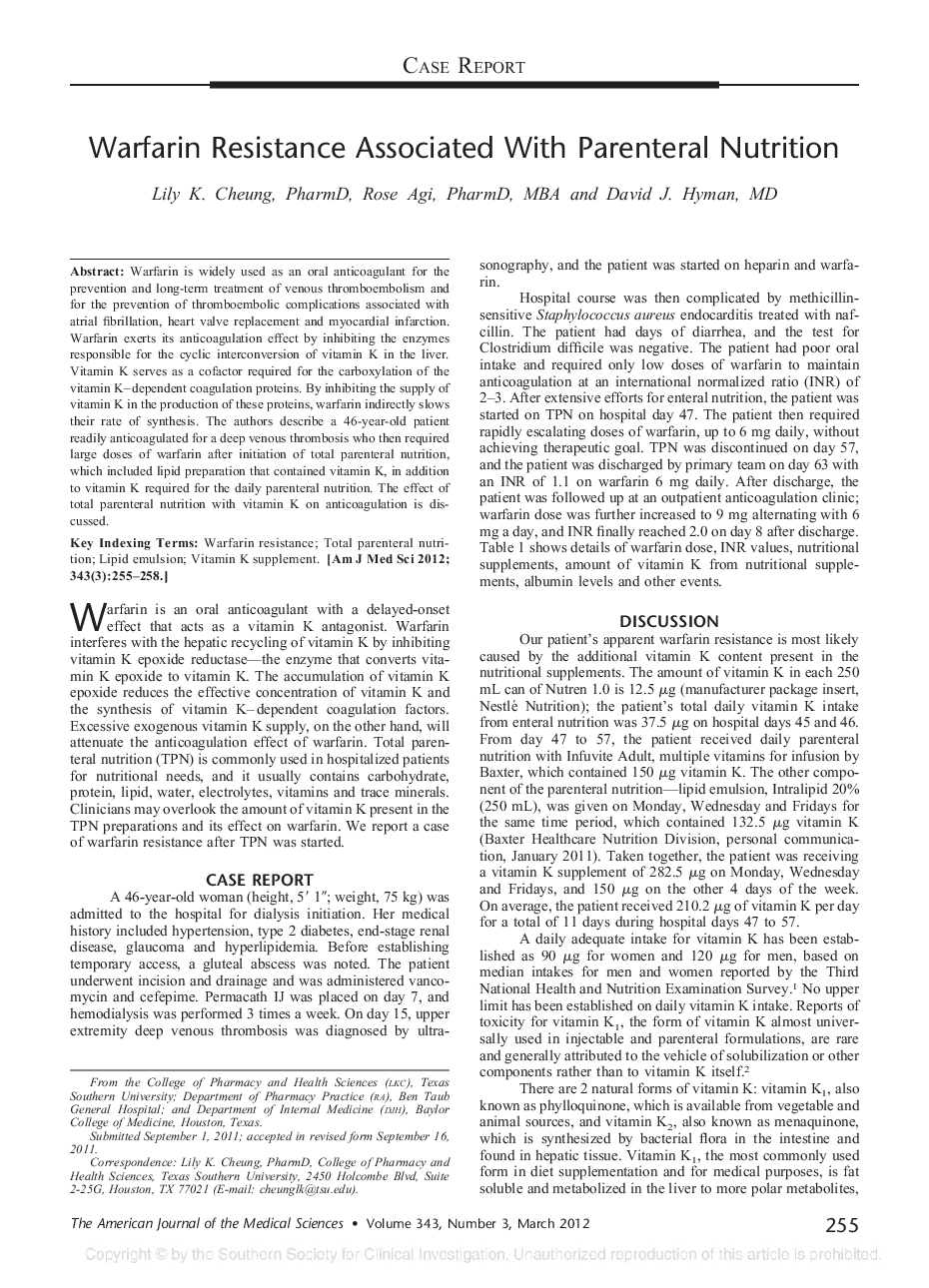| Article ID | Journal | Published Year | Pages | File Type |
|---|---|---|---|---|
| 2863971 | The American Journal of the Medical Sciences | 2012 | 4 Pages |
Warfarin is widely used as an oral anticoagulant for the prevention and long-term treatment of venous thromboembolism and for the prevention of thromboembolic complications associated with atrial fibrillation, heart valve replacement and myocardial infarction. Warfarin exerts its anticoagulation effect by inhibiting the enzymes responsible for the cyclic interconversion of vitamin K in the liver. Vitamin K serves as a cofactor required for the carboxylation of the vitamin K–dependent coagulation proteins. By inhibiting the supply of vitamin K in the production of these proteins, warfarin indirectly slows their rate of synthesis. The authors describe a 46-year-old patient readily anticoagulated for a deep venous thrombosis who then required large doses of warfarin after initiation of total parenteral nutrition, which included lipid preparation that contained vitamin K, in addition to vitamin K required for the daily parenteral nutrition. The effect of total parenteral nutrition with vitamin K on anticoagulation is discussed.
